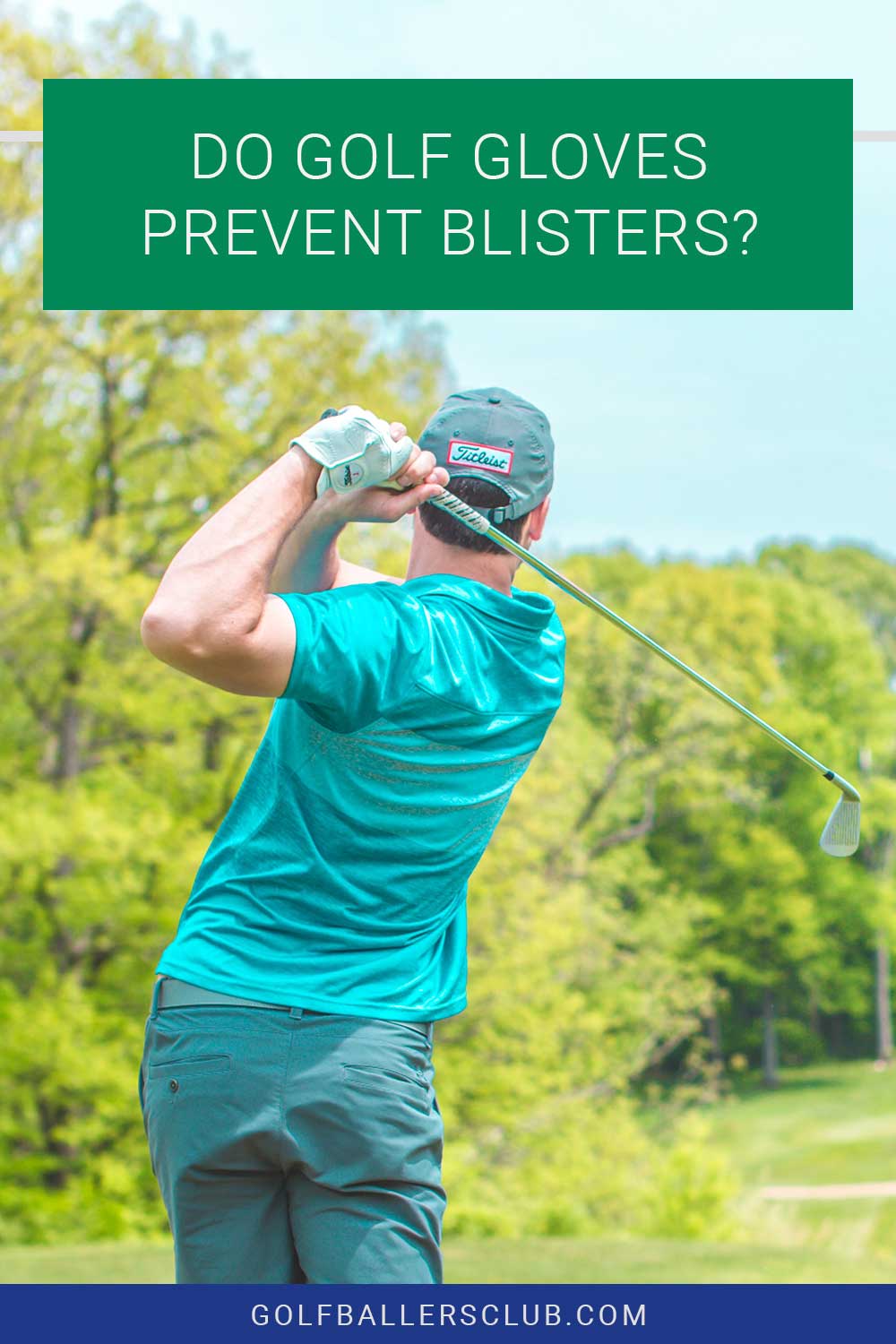Do Golf Gloves Prevent Blisters?
Last Updated on June 14th, 2023
We may earn commissions for purchases made through links on our site. Learn more on our about us page.
There are many reasons to wear gloves, one of them being to protect the hands from weather and other natural elements that can cause harm or injury.
Of course, this applies to sports, but friction will also be caused by performing actions such as a swing or catching a ball.
Sports like baseball and golf will have actions that cause friction on the players’ hands, in which the glove is used to provide a barrier between the skin and the shaft of the sporting equipment.
For example, this barrier will protect the palm and fingers from blistering or any other friction caused by abrasions from swinging a golf club.

Why Do You Get Blisters?
Blisters are caused by friction, pressure, and heat on the skin, which in combination causes burning to which the skin responds by creating a moisture barrier to prevent any further damage.
Second-degree burns, at minimum, will cause blistering, which can be caused by an open fire, hot surfaces, and a myriad of other ways, including constant friction caused by the rubbing from each stroke that can occur when playing golf.
The blisters that golfers will encounter will be friction blisters, which are caused by frequent rubbing and pressure against the hand’s skin, especially when over-gripping the club or playing without any sort of protection.
Can You Still Get Blisters with Gloves?
Certain types of gloves will be made with lower quality materials, many of which can lack adequate thicknesses or heat resistance capabilities needed to avoid such conditions that lead to blisters or other skin abrasions.
Golf club grips are made of different materials, from rubber to genuine leather, and each will have various textures and characteristics that will play differently than one another.
With all of these conditions taken into consideration, there are going to be certain situations that cause blistering or similar damage to a golfer’s hand if they are not careful.
Therefore, it is highly recommended that a player purchases a golfing glove designed to withstand the specific friction caused by the motion from swinging a club.
How Often Does it Happen?
Blisters will occur when you let your guard down or swing too hard a few too many times, which each individual differs in frequency. To be straightforward, there will be less likelihood of any damage being caused to the hand if you purchase a solid pair of golfing gloves.
These types of injuries only happen to beginners, those who do not play frequently enough to build calluses or those who are not careful and mindful about their grip.
With experience, there will be less chance, because of know-how, for any blistering actions or unnecessary pressure to be added to the mix.
Are Thicker Gloves More Effective?
Not necessarily. The smaller hand will actually struggle with thicker materials because of the fragile nature of their build, to which slippage and friction are created to compensate for the lack of strength in the grip.
These delicate hands will benefit from thinner, softer materials which will prevent the conditions mentioned earlier.
Larger hands, or stronger hands, will find the thicker glove to be more effective in preventing blistering and any other damage to a player’s hands.
Remember to balance breathability and material thickness, blistering can be caused by sweating in the glove. A tip will be to take the gloves off when putting; let your hand’s skin breathe on a hole.
Can Golf Gloves cause Blisters?
As mentioned in the section above, there are going to be certain combinations of players’ hands and glove materials that will not mix, such as the delicate hands using large, thick, oversized gloves designed for someone with bigger hands.
However, the gloves themselves will more than likely not be the direct cause unless you get a pair with a badly sewn seam that rubs against the fingers because of the manufacturer’s testing and designing phases.
This is why it is imperative that you take the time to get a good pair of gloves and try them on before purchasing them. This way, you can avoid wasting any money.
Final Thoughts on Do Golf Gloves Prevent Blisters
The last place you want to find out your gloves do not fit or will cause a blister will be out on the links when golfing with friends or, worse, work colleagues.
The pro shops that are located on the golf course grounds will have adequate and top-quality gloves that you can try on before purchasing, which will add to your confidence levels, which is always a good thing when playing golf.
There are going to be examples of players that will play without gloves, and these pro tour players include Fred Couples. But, of course, he started out playing that way as a boy.



Leave a Reply